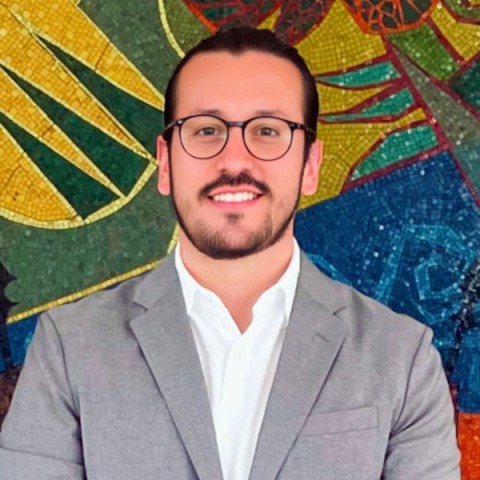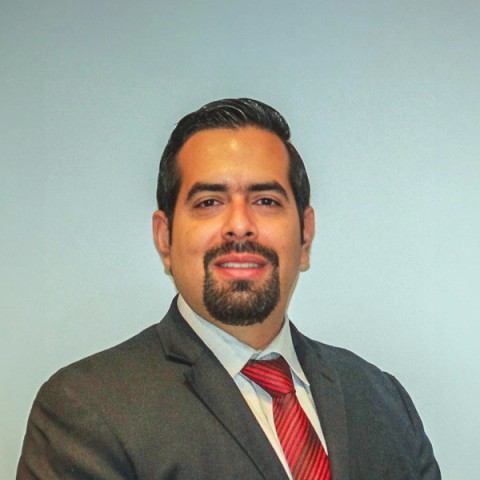Certificate in Sustainability and ESG Criteria
Fechas
Registro
In Collaboration with:

Since its inception in 1987, the concept of Sustainable Development has evolved, becoming an essential element for international organizations, governments, businesses, and society at large. The United Nations' 2030 Agenda establishes the Sustainable Development Goals as a new roadmap to achieve sustainable development, with common goals to protect the planet and ensure the well-being of people. Nowadays, ESG criteria (Environmental, Social, and Governance) are fundamental for corporate sustainability, addressing environmental, social, and governance commitments, in addition to the financial factor. These criteria are essential to meet the demands of society, legislative changes, and new frameworks of action. In this context, organizations face new challenges that highlight the importance of stakeholders. Companies that adopt sustainability strategies, building strong relationships with stakeholders, have a greater chance of improving their financial performance and generating lasting positive impacts on society and the environment. Currently, adopting ESG practices is no longer just a trend but a positive responsibility and, above all, a necessity to build and maintain a strong market reputation. To train these new profiles, the Universidad San Francisco de Quito presents the Sustainability and ESG Criteria Certification. This course responds to the need for companies to have professionals with deep knowledge and skills to develop their sustainability strategies.
Alignment with the SDGs:
The program is designed and directly aligned with the following SDGs:
- SDG 4: Quality Education
- SDG 8: Decent Work and Economic Growth
- SDG 12: Responsible Consumption and Production
- SDG 13: Climate Action
- SDG 17: Partnerships for the Goals
Online
65 academic hours - 50 hours in real-time via Zoom with an instructor and 10 hours of success stories: masterclasses with special guests.
Monday and Wednesday: 6:30 PM - 8:30 PM
Saturday: 9:00 AM - 11:00 AM
General Public Fee: $720
Early Payment Fee 1: $620 (until March 20)
Early Payment Fee 2: $650 (until March 29)
General Description
General Objective
This program provides a methodology and practical tools to formulate and lead an organization's sustainability strategy. It also aims to achieve a deep understanding of how to leave positive footprints, creating economic, social, and environmental value through sustainability by incorporating ESG criteria, with a strategic vision aligned with corporate objectives.
Specific Objectives
- Introduce participants to the field of sustainability, global trends, and business sector responses to the challenge of integrating ESG criteria into their sustainability plan
- Understand the concept and dimensions of sustainability
- Comprehend the policies and strategies that companies can apply to incorporate sustainability into their management
- Analyze the impact of sustainability on business management, assessing the risks and opportunities it generates
- Identify and prioritize stakeholders and develop a communication strategy
- Know the latest trends related to environmental, social, and governance aspects of business activities (ESG)
- Assess each of the environmental, social, and governance factors involved in sustainability and define how to communicate them effectively and transparently
Target Audience
The program is aimed at:
- All professionals with direct or indirect responsibility for their company's Social Responsibility.
- Managers, heads, technical managers, and administrative staff with an interest in environmental issues, social responsibility, sustainability, communication, corporate reputation, investor relations who wish to learn or improve their knowledge of sustainability strategies incorporating ESG criteria.
- Environmental consultants or professionals in the environmental sector who wish to learn or improve their knowledge in sustainability - ESG.
- Any professional interested in understanding the implications that this business concept has for management and the company's relations with society.
- Professionals in environmental sciences, environmental engineering, environmental communication, biology, environmental management and geography, climate change science, environmental economics and sustainable development, and environmental law.
Profile of the Graduate
Professionals who complete the program will be able to:
- Understand the concept and dimensions of sustainability and the strategies that companies can apply to incorporate Sustainability-ESG into their management.
- Analyze the impact of sustainability on business management, assessing the risks and opportunities it generates.
- Identify and prioritize stakeholders and develop a communication strategy and know the latest trends related to environmental, social, and governance aspects of business activities (ESG).
- Assess each of the environmental, social, and economic factors involved in the Sustainability - ESG strategy and define how to communicate them transparently.
- Build a sustainability plan incorporating ESG criteria considering corporate objectives guidelines.
Learning Outcomes
|
# |
Learning Outcomes |
Level |
|
1 |
Know key concepts around Sustainability and trends |
High |
|
2 |
Reflect on fundamental teachings about sustainability, ESG, and monitoring tools |
High |
|
3 |
Identify financing opportunities to develop projects with environmental and social impact |
Medium |
|
4 |
Develop a sustainability plan integrating ESG criteria |
High |
Content
MODULE I. CONCEPTUAL FRAMEWORK OF SUSTAINABILITY
Academic Coordinator / Professor: Juan José Cádenas
Duration: 8 hours of real-time class
Learning Objective: Develop a comprehensive understanding of the interrelationship between the origin, evolution, and current context of the principles of the United Nations Global Compact, as well as their projection beyond the 2030 Agenda towards a vision for 2050, with a specific focus on integrating the Sustainable Development Goals (SDGs) into corporate strategy and incorporating ESG (environmental, social, and governance) aspects to effectively manage associated risks.
Module Content:
- Planetary Boundaries, Anthropocene & Current Context "Big Problem"
- Current sustainability issues and processes generation for 2050
- Triple Impact or Green Growth, Beyond ESGs
- Companies as agents of change – regeneration
- Adaptive changes: How to break the rigidity trap?
- Practical cases
MODULE II. SUSTAINABILITY MANAGEMENT IN CORPORATE STRATEGY
Academic Coordinator / Professor: Vanessa Madrid Bañes
Duration: 8 hours
Learning Objective: Develop a deep understanding of the difference between sustainability and ESG criteria, assessing their similarity and the need for implementation in companies. Explore the origins and motivations behind these practices, as well as understand the importance of dialogue with stakeholders and the integration of ESG into business management. Learn to use reports effectively to communicate sustainable actions, and analyze internal and external communication strategies to convey commitment to sustainability, its economic and social impact on the company.
Module Content:
- Sustainability and ESG: Are they the same? Option or obligation? Origins, strategic importance, and motivations.
- Relationship and dialogue with stakeholders
- Integration of ESG into business management
- Making the most of reporting
- External and internal communication strategies
- The business case for sustainability
MODULE III. INTERPRETATION AND MEASUREMENT OF ESG
Academic Coordinator / Professor: Ricardo Cuba García
Duration: 15 hours
Learning Objective: Develop an understanding of the 21st-century business context, focusing on sustainability terms, standards, and criteria, as well as the impact of sustainable finance and the implementation of ESG principles. Acquire specific knowledge about sustainability indices such as the Dow Jones Sustainability Index (DJSI) and Corporate Sustainability Assessment (CSA), in addition to understanding compliance schemes in environmental, social, and governance aspects. Learn to identify key aspects of sustainability through materiality processes and conduct audits to assess and improve business practices in this area.
Module Content:
- Business context: 21st-century view
- Terms, standards, and criteria surrounding sustainability
- Sustainable finance and its impact
- Introduction to ESG (Environmental, Social, and Governance)
- Dow Jones Sustainability Index (DJSI) and Corporate Sustainability Assessment (CSA)
- Compliance schemes: Environmental Criteria, Social Criteria, Governance Criteria
- Materiality processes development
- Sustainability Auditing
MODULE IV. DESIGN AND IMPLEMENTATION OF ESG SUSTAINABILITY PLAN
Academic Coordinator / Professor: Alonso Hidalgo
Duration: 10 hours
Learning Objective: Develop skills to understand, design, and implement an ESG sustainability plan in an organization. This involves understanding the importance and benefits of the plan, conducting context and materiality analyses, defining a strategy aligned with the company, establishing a dashboard, and offering conclusions and recommendations for an effective long-term plan.
Module Content:
- What is a sustainability plan and why is it important?
- Benefits of implementing an ESG sustainability plan
- Development of the ESG sustainability plan
- Context analysis. Internal and external analysis (competitive benchmarking) of the organization
- Materiality analysis
- Definition of the ESG sustainability strategy. Alignment with corporate strategy
- Definition of the dashboard and plan monitoring
- Conclusions and recommendations for developing an effective sustainability plan
MODULE V. SUSTAINABILITY REPORTING
Academic Coordinator / Professor: José Miguel Iturralde
Duration: 9 hours
Learning Objective: Obtain a deep understanding of responsible communication in sustainability, the role of Rating Agencies and Sustainability Indices. Also, learn about sustainability reporting tools and the process of preparing reports according to the GRI standard. Additionally, analyze the ESG report and its impacts on communication and reputation of an organization, considering its influence on public perception and stakeholder relations.
Module Content:
- The importance of responsible communication
- Rating Agencies and Sustainability Indices
- Sustainability reporting tools
- The process of preparing a sustainability report according to the GRI standard
- ESG reporting and its implications in communication and reputation
Faculty

Juan José Cardenas
Juan José has worked with various multinational companies leading teams at At&T, Samsung, Concha y Toro & Kraft Foods. During this time, he realized that the commercial world lacked a very important factor, called sustainability. It was then that he decided to pursue a master's degree in environmental studies at the University of Melbourne. He is currently a Professor at the University San Francisco de Quito, with almost 5 years of experience in innovation and environmental business sustainability. He is also the founder of the first innovation company in permaculture structures in Ecuador. Additionally, he is a researcher, and his work has been published in various international indexed journals.

Vanesa Madrid Bañes
Specialist in environmental management and auditing with over 10 years of experience in the sector, including university teaching. Currently the Manager of City Services and Environmental Management at the Metropolitan Municipality of Lima, where he leads the environmental policy, management, and supervision of city maintenance.
Master's in Environmental Systems with a focus on clean processes from the Monterrey Institute of Technology and Higher Education. Currently pursuing a Doctorate in Environmental Sustainability at the National University of Engineering (UNI) Peru.

Francisco Xavier Hugo Cárdenas
With over 15 years of experience in project management for development and social responsibility. Collaborates with leading global companies to promote their evolution towards sustainable models. Expert consultant in key areas such as ESG, human rights, sustainability reporting, water, and carbon footprint measurement.
Internal Auditor in ISO 37001 Anti-bribery at INTEDYA International Dynamic Advisors (Peru). Internal Auditor Training in Integrated Management Systems (ISO 9001:2015, ISO 14001:2015, ISO 45001:2018) at SGS Academy (Peru).
International Sustainability Practitioner Course at Accountability (United Kingdom), based on AA1000 International Sustainability Standards. Lead Auditor in SA8000 Standard at CQI – IRCA (United Kingdom). GRI Certified Training Course at The Global Reporting Initiative (Netherlands).
Master's in Corporate Social Responsibility and Sustainability at the Barcelona School of High Management (Spain).

Alonso Hidalgo
Natural resources professional specializing in water governance, mineral, and energy resources.
With over eight years of work experience in the environment of think tanks and international NGOs managing research projects and advocacy campaigns. In 2022, completed a Master's in Science, Policy, and Water Management at the University of Oxford, focusing on relevant topics such as the circular economy of water in mining processes and energy transition. The thesis focused on the application of water management standards in mining.
Interest in corporate governance, sustainability, ESG, and supply chains.

José Miguel Yturralde
Environmental Engineer (University of Guayaquil). Master's in Sustainable Development & Corporate Responsibility (EOI Business School, Spain). Master's in Territorial Planning and Environmental Management (University of Barcelona, Spain). Business Sustainability Management (Cambridge University, United Kingdom). With over 15 years of experience leading social and environmental projects in various industries.
Schedule
| Month | Day | Hours | Schedule | Module | Topics | Professor | |
| April | 15 | Monday | 2 | 6:30 PM - 8:30 PM | Module 1- Conceptual Framework of Sustainability | Planetary Boundaries, Anthropocene & Current Context's "Big Problem" | Juan José Cárdenas |
| 17 | Wednesday | 2 | 6:30 PM - 8:30 PM | Current Sustainability Issues and Process Generation for 2050 | |||
| 20 | Saturday | 2 | 9:00 AM - 11:00 AM |
Triple Impact or Green Growth, Beyond ESGs Companies as Agents of Change – Regeneration |
|||
| 22 | Monday | 2 | 6:30 PM - 8:30 PM | Practical Cases Adaptive Changes: How to Break the Rigidity Trap? |
|||
| 23 | Tuesday | 2 | 6:30 PM - 8:30 PM | Special Guest Masterclass | |||
| 24 | Wednesday | 2 | 6:30 PM - 8:30 PM | Module 2- Sustainability Management in Corporate Strategy | Sustainability and ESG: Are They the Same? Option or Obligation? Origins, Strategic Importance, and Motivations. | Vanessa Madrid Bañes | |
| 27 | Saturday | 2 | 9:00 AM - 11:00 AM |
Relationship and Dialogue with Stakeholders Integration of ESG in Business Management |
|||
| 29 | Monday | 2 | 6:30 PM - 8:30 PM |
Benefitting from Reporting External and Internal Communication Strategies |
|||
| May | 1 | Wednesday | 2 | 6:30 PM - 8:30 PM | The Business Case of Sustainability | ||
| 2 | Thursday | 2 | 6:30 PM - 8:30 PM | Special Guest Masterclass | |||
| 6 | Monday | 2 | 6:30 PM - 8:30 PM | Module 3- ESG Interpretation and Measurement |
Business Context: 21st Century Vision Terms, Standards, and Criteria Surrounding Sustainability |
Ricardo Cuba García | |
| 8 | Wednesday | 2 | 6:30 PM - 8:30 PM |
Sustainable Finance and Its Impact Introduction to ESG (Environmental, Social, and Governance) |
|||
| 11 | Saturday | 2 | 9:00 AM - 11:00 AM |
Dow Jones Sustainability Index (DJSI) and Corporate Sustainability Compliance Schemes: |
|||
| 13 | Monday | 2 | 6:30 PM - 8:30 PM | Materiality or Relevance Process Development | |||
| 15 | Wednesday | 2 | 6:30 PM - 8:30 PM | ||||
| 18 | Saturday | 3 | 9:00 AM - 12:00 PM | Sustainability Audit | |||
| 20 | Monday | 2 | 6:30 PM - 8:30 PM | ||||
| 21 | Thursday | 2 | 6:30 PM - 8:30 PM | Special Guest Masterclass | |||
| 22 | Wednesday | 2 | 6:30 PM - 8:30 PM | Module 4- Design and Implementation of ESG Sustainability Plan |
What is a Sustainability Plan and Why is it Important? Benefits of Implementing an ESG Sustainability Plan |
Alonso Hidalgo | |
| 27 | Monday | 2 | 6:30 PM - 8:30 PM |
Development of ESG Sustainability Plan Context Analysis. Internal and External Analysis (Competitive Benchmarking) of the Organization |
|||
| 29 | Wednesday | 2 | 6:30 PM - 8:30 PM |
Materiality Analysis Definition of ESG Sustainability Strategy. Alignment with Business Strategy |
|||
| June | 1 | Saturday | 2 | 9:00 AM - 12:00 PM | Dashboard Definition and Plan Monitoring | ||
| 3 | Monday | 2 | 6:30 PM - 8:30 PM | Conclusions and Recommendations for Developing an Effective Sustainability Plan | |||
| 4 | Tuesday | 2 | 6:30 PM - 8:30 PM | Special Guest Masterclass | |||
| 5 | Wednesday | 2 | 6:30 PM - 8:30 PM | Module 5- Sustainability Reporting | The Importance of Responsible Communication | José Miguel Yturralde | |
| 8 | Saturday | 2 | 9:00 AM - 11:00 AM | Rating Agencies and Sustainability Indexes | |||
| 10 | Monday | 3 | 6:30 PM - 9:00 PM |
Sustainability Reporting Tools The Process of Developing a Sustainability Report According to the GRI Standard |
|||
| 12 | Wednesday | 2 | 6:30 PM - 8:30 PM | ESG Reporting and Its Implications on Communication and Reputation | |||
| 13 | Thursday | 2 | 6:30 PM - 8:30 PM | Special Guest Masterclass | |||
Certificate Issuance Parameters
Evaluation Mechanism
- Module 1: Sustainability Cards - 10%
- Module 2: Quiz and Case Resolution - 15%
- Module 3: Quiz and Forum Participation - 30%
- Module 4: Quiz and Forum Participation - 15%
- Module 5: Quiz and Forum Participation - 10%
- Zoom Sessions (attendance and participation): Students must attend at least 80% of the sessions - 20%
Certificate of Approval
At the end of the course, participants must meet a minimum of 80% total attendance of the program as well as pass the assessment components with a minimum of 80%.
If these conditions are met, the Universidad San Francisco de Quito will issue a certificate for the number of academic hours completed.
The Universidad San Francisco de Quito will award a digital badge for the academic achievements obtained as a participant. This badge is a digital version of the academic certificate which can be shared online in a more efficient manner and serves as a reliable method for verifying certification in real-time.
With the support of

Registration
General Public Rate: $720
Early Payment Rate 1: $620 (until March 20)
Early Payment Rate 2: $650 (until March 29)
Payment for the program can be made through the following methods:
STEP 1: Make Payment
Bank Transfer or Cash Payment
Account Details:
Payable to Universidad San Francisco de Quito
Banco Bolivariano
Current Account No. 5075003350
(RUC: 1791836154001)Payable to Universidad San Francisco de Quito
Banco Pichincha
Current Account No. 3407330004
(RUC: 1791836154001)
Credit Card
Click on the following PAY HERE and fill out the information requested by the form. Upon completion, you will be automatically registered in the system.
With credit cards from Banco Pichincha, Banco Bolivariano, Produbanco, Banco de Guayaquil, and Banco del Austro, you can access the following financing options: 3, 6, 9, and 12 months without interest.
STEP 2: Confirm Your Payment
If you made the payment by Transfer or Deposit, please send a copy of the deposit receipt (scanned) and your personal details (full name, ID, phone, and address) to the following email: rordonez@usfq.edu.ec
* If you require an invoice with different details from the participant's, please detail the following information in the email (company name, RUC/ID, phone, address, and email).
If you made the payment with a Credit Card, it is not necessary to confirm your payment, as the system will automatically register your details.
STEP 3: Registration Confirmation
You will receive a registration confirmation email with relevant course information.
* The program coordination reserves the right to suspend or reschedule the activity if it does not have the minimum required number of students or due to force majeure reasons. In such cases, the full amount of money will be refunded to enrolled students as soon as possible.

